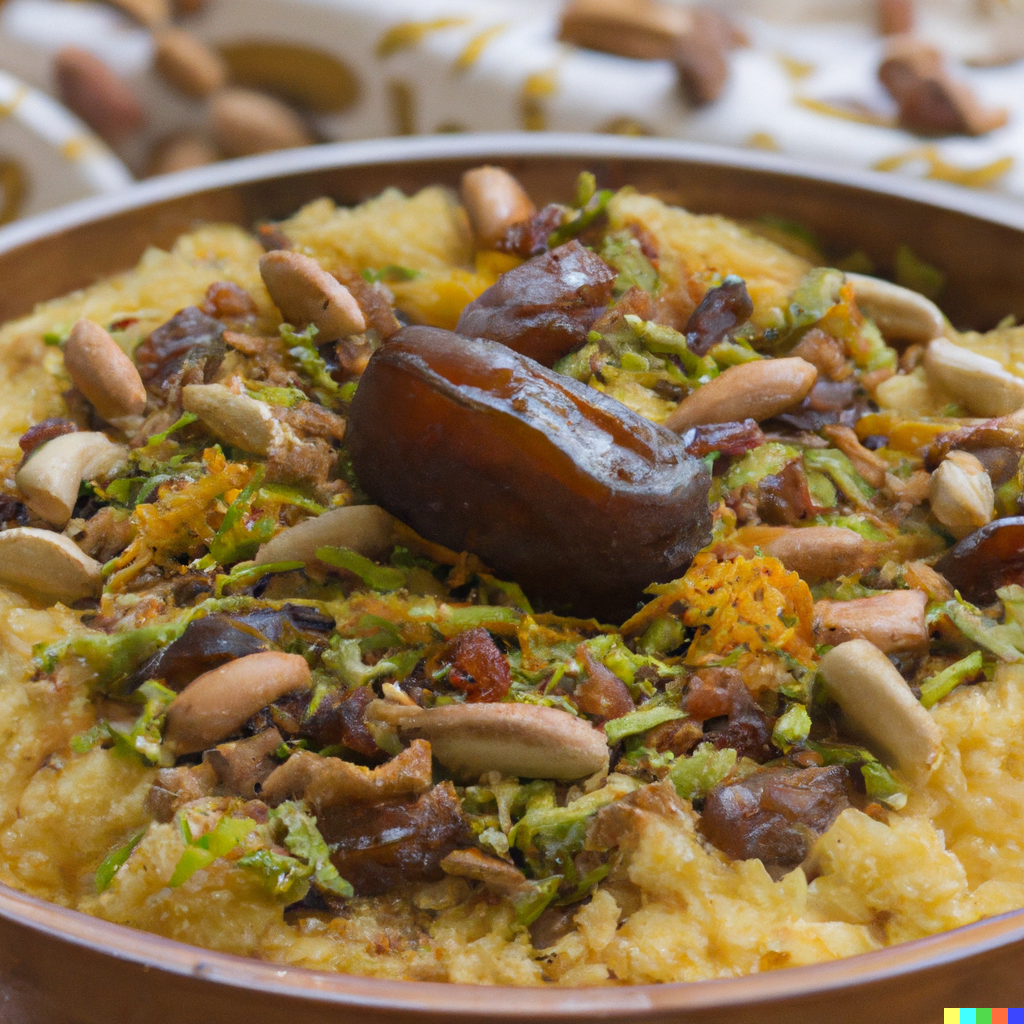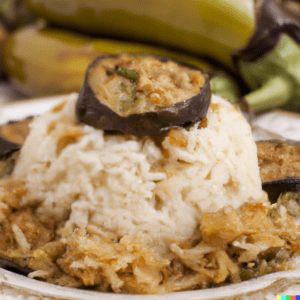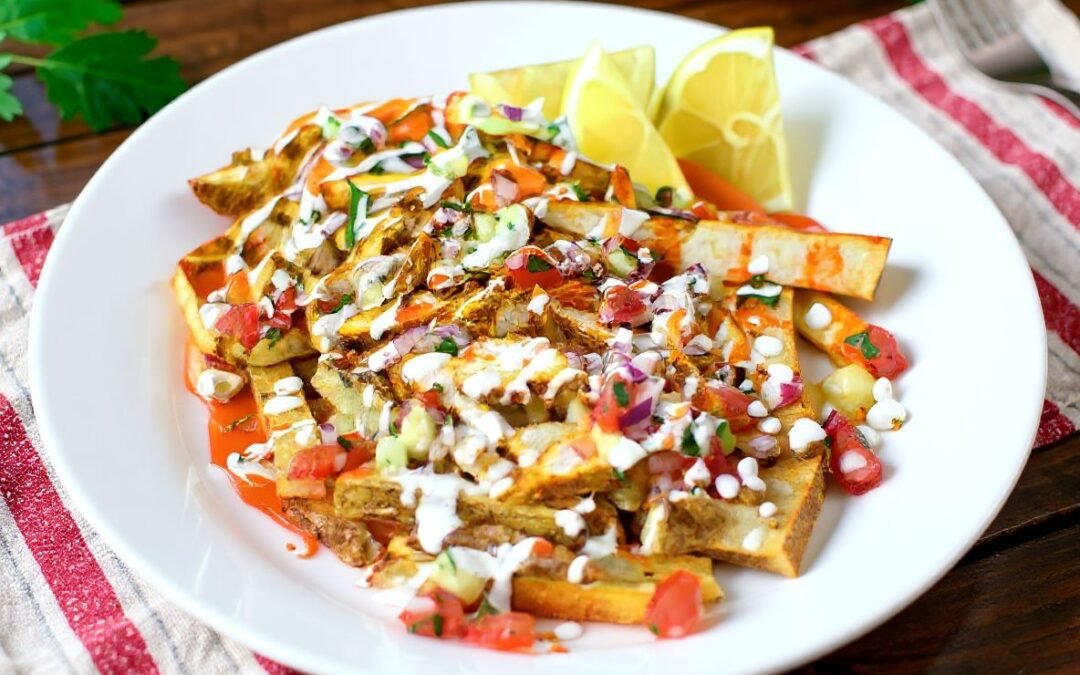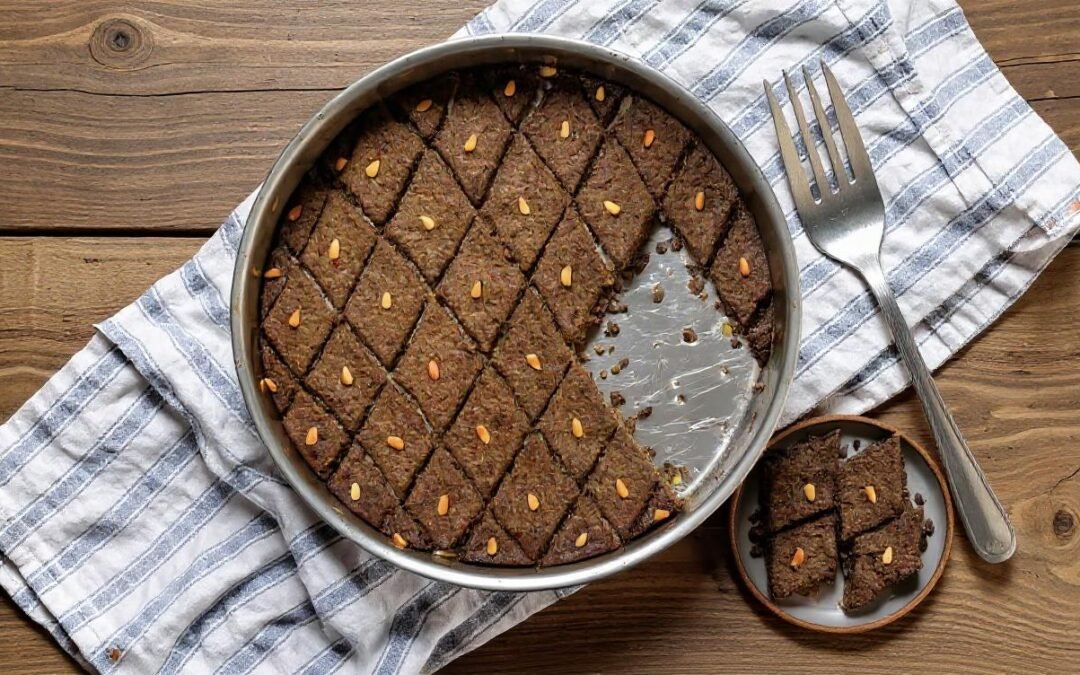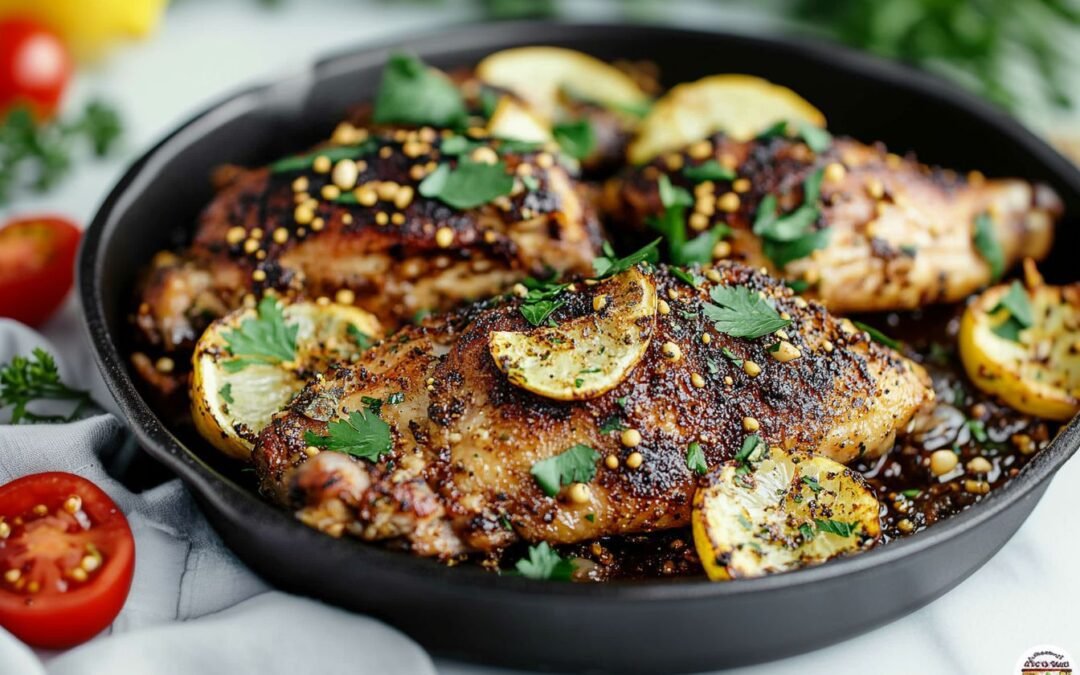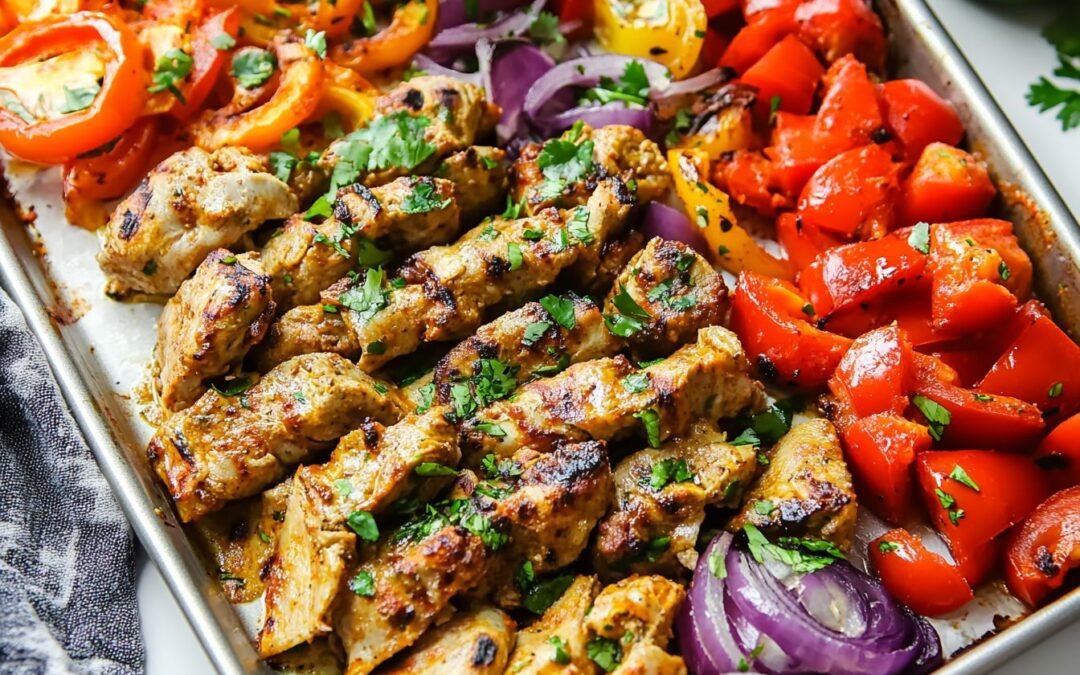A few years ago at a fair, I had a conversation with someone about the famous dish maqluba with beef. It was interesting to hear their take on it, plus they even shared the recipe. Despite already being familiar with it, I felt like this person’s experience added more depth & nuance to this dish’s narrative.
My grandpa was born in Syria and raised in the outskirts of Damascus. He experienced a very difficult life in the 1940s & 1950s as his family struggled to get by. He used to tell stories about how challenging it was for them financially. Despite the difficulties, my grandfather was determined & enthusiastic about achieving his dream of migrating to the US and leading a better life there. He was always optimistic about his future and worked hard to make it happen.
In the early 1960s, my grandfather had an opportunity to move from Syria to the United States. He was only in his 20s and set out with a few belongings and hope for a better life. His journey took him to Florida, where he began his new life.
The transition to life in a new country was difficult for my grandfather, who frequently discussed his longing for the people, places and aromas of Syria which were so familiar to him. Despite the hurdle of not speaking English, he was determined to succeed in America. Thus, he put in a lot of effort to learn the language as well as find a job that would help him reach his goal.
My grandpa had strong connections to his Syrian heritage, especially when it comes to the food. He was fond of talking about the tasty dishes his mom cooked for him when he was younger and wished to relive those moments by eating them again.
While strolling through a marketplace in Florida, my grandfather encountered an aroma that he recognized. Then he saw a woman cooking a dish that reminded him of his childhood. Curiously, he strolled up to her and inquired what she was cooking. She explained that it was maqluba with beef, a Syrian recipe composed of rice, veggies and beef.
My grandfather was delighted to be able to eat the flavorful dish again and requested the lady to show him how to make it. She happily obliged and shared with him the recipe of the maqluba with beef. My grandpa put in effort and practice to make this dish exactly as his mom used to make.
With time, my grandfather was able to master the preparation of maqluba with beef and used to treat his family and friends with it on special occasions. He was passionate about introducing people to the delicious cuisines and fragrances from his Syrian heritage, which he loved sharing with others. He took immense pride in showing the world all that his native country has to offer.
As I matured, I began to understand my grandfather’s admiration for food and his desire to pass on this skill to others. I would often join him in the kitchen and learn how to make maqluba with beef and other popular Syrian recipes.
Even to this day, I still remember my grandfather whenever I have the pleasure of enjoying one of his most famous dishes – maqluba with beef. It is certainly one of my all-time favorites. I feel fortunate to have had the chance to explore my grandfather’s culture and traditions, and to pass on his legacy to others. It has been a privilege for me. Even though my grandfather had to leave Syria at a young age, he never forgot his origin and always held onto the memories of his homeland by bringing a piece of it with him wherever he went.
So here it is – the famous maqluba with beef recipe.
Ingredients:
- 1/2 lb stew meat or 1-inch cuts of beef, lamb, or chicken
- 1/2 lb ground beef
- 1 lb eggplants
- 2 cups rice
- Frying oil
- Approximately 1/2 to 1 cup of assorted nuts such as pine nuts, cashews and almonds.
- whole spices like bay leaves, cloves and nutmeg for the stew meat. You can also use ground spices.
- 1 tbsp ghee or canola oil
- Salt and pepper to taste.
How to make maqluba with beef?
1. To begin making a maqluba, put the stew meat and 4 cups of water in a pot, bring it to a boil, and remove any foam that may gather on top. After that, add the whole spices, season with salt & pepper and let the mixture simmer for 2-3 hours.
2. As the stew is cooking, prepare the eggplant by slicing it into 1/2-inch pieces, salting them and leaving them to sit for 30 minutes. Afterwards rinse the eggplant and pat it dry to remove moisture from each piece. Begin by heating some oil in a pan over high heat. Then, fry the eggplant slices until they are golden brown and set aside on paper towels to absorb any excess oil. For cauliflower, blanch it before frying it for the best results.
3. To cook the rice, bring 2 cups of water to a boil and stir in the rice. Let it sit for 5 minutes, then rinse the rice with cold water to get rid of any excess starch.
4. Put the stew meat in a large pot, then follow it up with layering eggplant slices on top, and finally add the rice to complete the dish.. Pour 3 cups of stew meat stock into the pot and let it come to a boil. Once the mixture starts boiling, turn the heat to low and let it simmer for 25 minutes.
5. In a pan, cook the ground meat and season it with salt and pepper. In another pan, heat some ghee or canola oil and fry the nuts until they reach a golden brown hue and have a fragrant smell. It is advisable to fry different types of nuts separately since they have varied frying times. Doing so ensures that all the nuts are cooked properly & neither over- nor undercooked.
Once the rice is ready, carefully turn the pot over onto a plate. This will make a layered meal with eggplant, meat, and rice. For garnishing you can sprinkle ground meat and nuts to give it a tasty look. To best enjoy the maqluba with the beef, it is recommended to be served with Arabic salad, cucumber yogurt salad, or Ayran yogurt.
That’s it! It may take longer to prepare at first, but it’s definitely worth the effort!
